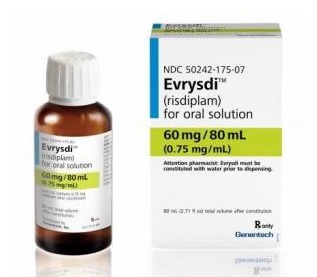The advent of novel drugs that substitute intravenous or intrathecal injections with subcutaneous injections, patches, or oral formulations has enhanced treatment convenience for patients and minimized both direct and indirect costs, including hospital and transportation expenses.

The availability of the orally administered syrup Evrysdi (risdiplam) for spinal muscular atrophy (SMA), a rare, inherited disease, holds promise. However, Korean SMA patients weighing over 20 kg currently cannot access to the convenience and affordability of Evrysdi.
Since October of last year, Evrysdi has been included in Korean health insurance coverage. However, the Health Insurance Review and Assessment Service (HIRA) has restricted the maximum prescription dose of Evrysdi to two bottles per long-term prescription.
"With Evrysdi, the dosage is tailored according to weight and age, requiring adolescent and adult patients weighing over 20 kg to visit the doctor every three weeks for their medication," said a Roche Korea official.
An adolescent or adult SMA patient weighing over 20 kg undergoing treatment with Evrysdi would need to visit the doctor significantly more frequently compared to a patient treated with Spinraza (nusinersen), which involves an intrathecal infusion every four months.
According to the storage and handling guidelines for Evrysdi, it can be stored for up to 64 days after dispensing, permitting a two-month supply per prescription.
However, in Korea, only patients under the age of two can benefit from the convenience of visiting the doctor once every two months due to reimbursement restrictions.
This dosing restriction is not standard practice internationally, industry officials said.
"If we examine other countries like the U.K., Canada, and Australia, there are no instances of restricting the prescribed dose of Evrysdi," stated the Roche Korea official. "Furthermore, additional visits for motor function assessments are necessary to continue receiving the medication, leading to more frequent appointments than the reimbursement standard, thereby adding to the burden on SMA patients and their caregivers in Korea."
This restriction was not enforced during Evrysdi's administration in clinical studies before its reimbursement in Korea. However, reimbursement for Evrysdi has led to increased hospital visits for patients with SMA, a rare muscle disease characterized by progressive muscle weakness and deterioration throughout the body.
"The prescription dose limit serves as a barrier for patients in need of oral treatment, and we firmly believe that lifting this restriction for Evrysdi will enable patients in Korea to fully benefit from its treatment," the Roche official said.
Related articles
- Spinraza reimbursement denied for some SMA patients after failure to prove motor function maintenance
- SMA treatment Evrysdi shows ‘encouraging results in a wide range of patients’
- Expanded reimbursement for Spinraza improves patient access: Biogen Korea
- Roche’s SMA oral drug wins health insurance coverage in Korea

